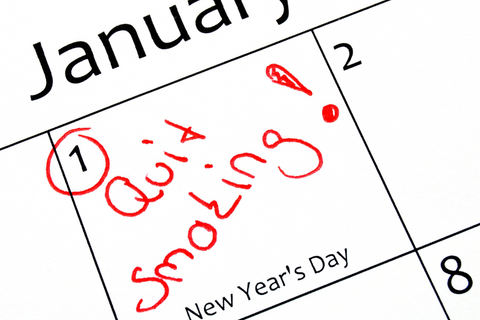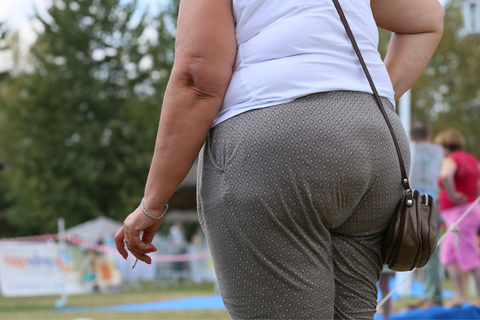- Key Takeaways
- Why You Should Quit Smoking Before Bariatric Surgery
- List of Reasons to Quit Smoking Before Bariatric Surgery
- Potential Complications For Bariatric Patients Who Used to Smoke
- How Long Before Bariatric Surgery to Quit Smoking
- Why Not To Smoke After Bariatric Surgery
- Potential Complications From Smoking After Bariatric Surgery
- Smoking Alternatives for Bariatric Patients
- Frequently Asked Questions
- When can I smoke after a gastric sleeve?
- Does smoking cause ulcers after gastric bypass?
- Can you have bariatric surgery if you smoke?
- Do they test for nicotine before bariatric surgery?
- Is it safe to use vaping or CBD products before bariatric surgery?
- Are there risks associated with smoking after a Roux-en-Y procedure?
Bariatric surgery is a life-changing procedure that can help patients achieve long-term weight loss and improve overall health. However, certain lifestyle choices, such as smoking, can dramatically affect the outcome of the surgery. In this article, we'll explore the importance of quitting smoking before bariatric surgery, the potential complications associated with smoking for bariatric patients, and alternatives to help those struggling with nicotine addiction.
Quitting smoking prior to bariatric surgery is crucial because it can reduce the risk of complications and optimize the results of the procedure. Smoking has been linked to a variety of health issues, not only making it more difficult for patients to lose weight but also increasing the risk of postoperative complications. Furthermore, it is vital that patients who have undergone bariatric surgery avoid smoking afterward, due to heightened chances of complications and the potential to undermine the benefits of their procedure.
Key Takeaways
- Quitting smoking before bariatric surgery decreases the risk of complications and improves surgical outcomes.
- Smoking after bariatric surgery can lead to health issues and limit the benefits of the procedure.
- Exploring smoking alternatives can support bariatric patients in maintaining a healthier lifestyle post-surgery.
Why You Should Quit Smoking Before Bariatric Surgery
As you consider undergoing bariatric surgery, it's crucial to address your smoking habits beforehand. Quitting smoking is essential to reducing the risk of complications and ensuring a successful healing process after surgery. In this section, we will discuss how smoking affects your health, particularly during the bariatric surgery process.
Firstly, smoking has a profound impact on your lungs. Tobacco use can lead to chronic lung diseases, which may complicate the bariatric surgery procedure and its aftermath. Additionally, smoking decreases your lung capacity, making it more challenging to breathe during and after surgery.
Moreover, smoking can impede your healing process. Tobacco use constricts blood flow, making it more difficult for your body to deliver oxygen and nutrients to the surgical site. This can slow down the healing process and increase the risk of infection in the post-operative period.
Surgeons are well aware of the risks associated with tobacco use during the surgical process; many of them require patients to cease smoking for a specified period before scheduling bariatric surgery. This cessation period allows your body to recover and repair damaged tissues, as well as improve blood flow, essential for a successful outcome.
Key factors to consider when quitting smoking before bariatric surgery include:
- Improved lung function, allowing for better breathing capacity during and after surgery.
- Enhanced blood flow, supporting a smoother healing process.
- Reduced risk of surgical complications, such as infections, bleeding, or blood clots.
- Increased likelihood of long-term weight loss success.
In conclusion, quitting smoking before bariatric surgery is vital to minimizing the risk of complications and ensuring successful healing. Speak with your healthcare provider about resources and support for smoking cessation to start your journey toward a healthier future.
List of Reasons to Quit Smoking Before Bariatric Surgery

- Improved surgical outcomes: Quitting smoking before your weight loss surgery can significantly increase the chances of a successful procedure. Smoking damages your lungs and reduces the amount of oxygen in your blood, which can negatively affect the healing process.
- Decreased risk of ulcers: Smoking is a major factor in the development of ulcers. After bariatric surgery, you are at a higher risk of developing an ulcer. By quitting smoking, you reduce the likelihood of ulcers forming in your stomach or intestines.
- Reduced risk of blood clots: Smoking increases the risk of blood clots, which can be life-threatening, especially after surgery. Quitting smoking before your surgery will lower this risk and help ensure a smoother recovery.
- Better weight loss results: Smoking can suppress your appetite and may initially result in some weight loss. However, this is not a healthy or sustainable way to lose weight. By quitting smoking, you are more likely to see better results from your bariatric surgery and maintain a healthier weight in the long run.
- Improved overall health: Smoking is linked to numerous health concerns, including heart disease, stroke, and cancer. Quitting smoking before your surgery will not only improve your immediate surgical outcomes but will also decrease your risk of future health issues.
Remember that it is never too late to quit smoking, and doing so before your weight loss surgery can lead to the best possible outcome. Consult your healthcare provider for support and resources on quitting smoking, and let them know about your upcoming surgery. Your commitment to quitting smoking is an essential step in your journey towards a healthier, happier life.
Potential Complications For Bariatric Patients Who Used to Smoke

As a bariatric patient who used to smoke, it's crucial to be aware of the potential complications that may arise from your prior tobacco use. Smoking can have long-lasting effects on your body, which is why it's so important to understand the risks and take steps to minimize them.
One of the major complications related to smoking is an increased risk of heart attack. The carbon monoxide present in tobacco products reduces the amount of oxygen your blood can carry, putting additional strain on your heart. Furthermore, nicotine can constrict your blood vessels, raising blood pressure and making heart attack more likely.
Postoperative complications are also a concern for bariatric patients with a history of smoking. Your immune system can be weakened from tobacco use, making it harder for your body to fight off infections. This can lead to slower healing, a higher risk of infection, and an increased chance of complications such as perforation or leakage at the surgical site.
Vomiting is another potential issue for former smokers who have undergone bariatric surgery. The entrance to the stomach pouch may become irritated or swollen due to damage from smoking, causing discomfort and difficulty with eating. In some cases, this can lead to malnutrition or dehydration.
Of course, the risk of lung cancer cannot be ignored. Smoking damages the tissues within your lungs, making it more difficult for them to function properly. Even if you've quit smoking, your risk of developing lung cancer remains elevated compared to those who have never smoked. It's essential to maintain regular check-ups with your healthcare team to monitor your lung health.
As a bariatric patient, quitting smoking is one of the best decisions you can make for your overall health. By understanding the potential complications associated with your past tobacco use, you can take appropriate measures to mitigate these risks and focus on your journey to a healthier life.
How Long Before Bariatric Surgery to Quit Smoking
It's important that you quit smoking at least six weeks before your bariatric surgery. This will significantly reduce the risk of complications during and after the procedure. Smoking can cause various problems for patients undergoing bariatric surgery, such as increased risk of infection, blood clots, and delayed healing. By ceasing smoking for a substantial period before the surgery, you will improve your overall health and increase the chances of a successful outcome.
During the six-week cessation period, your body will have time to detoxify from the harmful toxins found in cigarettes. This will allow your lungs to function more efficiently, enabling you to better tolerate anesthesia during the surgery. Improved lung function can also lead to a faster recovery period.
To support your smoking cessation efforts, consider engaging in a comprehensive program that includes nicotine replacement therapies, counseling, and support groups. Your healthcare team will play an integral role in advising you on the most effective methods to help you quit smoking. It's essential to communicate openly with them about your smoking habits and cessation progress.
In conclusion, quitting smoking at least six weeks before your bariatric surgery is critical. It will significantly reduce the risk of complications and lead to a quicker recovery. By following a cessation program tailored to your needs, you can take the necessary steps toward a successful surgery and improved health.
Why Not To Smoke After Bariatric Surgery

Smoking after bariatric surgery can jeopardize your weight loss journey and overall health. Your surgeon and healthcare team will emphasize the importance of quitting smoking before and after your surgery. Here's why:
Compromised Wound Healing: Smoking constricts your blood vessels and decreases blood flow, which can cause issues with wound healing after surgery. Proper circulation is crucial for healing and reducing the risk of infection. When you smoke, your body struggles to deliver oxygen and essential nutrients to the wound, prolonging the healing process.
Increased Risk of Complications: Smoking can increase the risk of surgical complications such as blood clots, pulmonary embolism, and pneumonia. Furthermore, nicotine disrupts the normal function of your immune system, making you more susceptible to infection. To ensure a smoother recovery, it's vital to quit smoking before and after your weight loss surgery.
Impaired Nutrient Absorption: Bariatric surgery alters your digestive system to help you achieve significant weight loss. Smoking negatively affects your body's ability to absorb essential nutrients, such as vitamins and minerals, which are already impacted by the surgery. This may lead to malnutrition, hindering your weight loss and overall health.
Obstruction and Blockage: Smoking can cause inflammation and increase the formation of scar tissue, which may lead to blockage or obstruction in your digestive tract. This is especially concerning after bariatric surgery, as your body is still adjusting to the new digestive system. An obstruction can cause severe pain and may require additional surgery to correct the issue.
By quitting smoking before your bariatric surgery, you significantly reduce these risks and set yourself up for success in your weight loss journey. Consider seeking support from your healthcare team or a cessation program to help you quit smoking and maintain a smoke-free lifestyle after surgery. Remember, your long-term health and successful weight loss depend on the choices you make.
Potential Complications From Smoking After Bariatric Surgery
By continuing to smoke after bariatric surgery, you may face an increased risk of various complications. Smoking has detrimental effects on the body, and when combined with the changes from bariatric surgery, it can lead to a range of serious issues.
- One of the most common complications related to smoking after bariatric surgery is ulcer formation. Nicotine increases the production of stomach acid, which can cause the formation of ulcers in the digestive system. This can be especially concerning after bariatric surgery, as the surgery often involves reducing the size of the stomach and bypassing a portion of the small intestine. Ulcers can cause significant pain and may require additional treatment to heal.
- Another potential concern related to smoking after bariatric surgery is the increased risk of blood clots. Nicotine and other chemicals in cigarettes can cause the blood to become more viscous and sticky, increasing the likelihood of clots forming. Blood clots can be life-threatening, particularly if they travel to the lungs and cause a pulmonary embolism.
Smoking can also hinder the wound-healing process after bariatric surgery. Cigarette smoke reduces the amount of oxygen in your blood, which is essential for the healing process. Slower wound healing can increase your risk of developing an infection at the surgery site.
Infections are another potential complication related to smoking. The chemicals in cigarette smoke can weaken your immune system, making it more difficult for your body to fight off infections. This can be particularly problematic after bariatric surgery when your body is in a more vulnerable state as it recovers from the procedure.
Smoking after bariatric surgery can also cause strictures to form in the digestive system. Strictures are narrowings in the gastrointestinal tract that can make it difficult to consume food or liquids. This can lead to various nutritional deficiencies and may require additional medical interventions.
Lastly, continuing to smoke after bariatric surgery puts you at a higher risk of developing lung cancer. While bariatric surgery is often performed to improve overall health and reduce obesity-related health risks, continuing to smoke negates some of these benefits by increasing your risk of lung cancer.
In conclusion, smoking after bariatric surgery can lead to a range of complications, including ulcers, blood clots, infections, impaired wound healing, strictures, and lung cancer. By quitting smoking before your procedure and remaining smoke-free afterward, you can significantly reduce the risks associated with these complications and improve your overall health.
Smoking Alternatives for Bariatric Patients
As a bariatric patient, it is essential to prioritize your health and well-being by quitting smoking. Tobacco products increase the risk of mortality, stroke, and other complications after surgery. Luckily, there are several smoking alternatives and resources available to help you on your journey.
Nicotine Replacement Therapy (NRT) can be a viable option for you to consider. NRT products, such as nicotine patches and nicotine gum, can help curb your cravings without relying on tobacco. Nicotine patches release a steady stream of nicotine into your bloodstream, while nicotine gum allows you to control when and how much nicotine you receive.
When using nicotine patches, follow the instructions provided to ensure proper application and effectiveness. Start with a higher-dose patch and gradually reduce the dosage over the course of several weeks as your cravings decrease. If you experience any skin irritation, be sure to consult your healthcare provider for further guidance.
Nicotine gum can also be an effective short-term solution for managing cravings. Chew the gum whenever you feel the urge to smoke, being careful not to exceed the maximum recommended daily usage. As your cravings decrease, you can slowly reduce the number of pieces you consume per day.
In addition to NRT, incorporating healthy snack alternatives into your daily routine can help divert your attention from smoking. Foods like carrot sticks and other low-calorie, crunchy items can be satisfying substitutes for cigarettes.
Lastly, take advantage of available resources to support your efforts. Connect with local support groups, seek guidance from a mental health professional, or leverage various cessation apps and tools designed for bariatric patients.
Remember, quitting smoking is a crucial step toward improving your overall health and enhancing the success of your bariatric surgery. By exploring the smoking alternatives mentioned and seeking support when needed, you'll be on your way to a healthier, smoke-free life.
Frequently Asked Questions
When can I smoke after a gastric sleeve?
It is strongly advised that you avoid smoking after a gastric sleeve surgery. Smoking can lead to complications and negatively impact your recovery. Ideally, you should quit smoking before surgery and stay abstinent throughout your weight loss journey.
Does smoking cause ulcers after gastric bypass?
Yes, smoking can increase the risk of developing ulcers after gastric bypass surgery. The nicotine in cigarettes can cause the stomach to produce more acid, which increases the likelihood of ulcers. To maintain your health and properly heal, it's crucial to quit smoking prior to surgery.
Can you have bariatric surgery if you smoke?
Many bariatric surgeons require patients to quit smoking before surgery to minimize the risks associated with smoking. Smokers face a higher risk of complications during and after surgery, and smoking can impede the weight loss process. It's important to discuss your smoking habits with your surgeon, as they might require you to quit entirely or at least for a specific period before surgery.
Do they test for nicotine before bariatric surgery?
Yes, many surgeons perform nicotine testing before bariatric surgery. This test helps ensure that patients have quit smoking, as nicotine can increase the risk of surgical complications and slow down the healing process. If you test positive for nicotine, your surgery might be delayed or canceled.
Is it safe to use vaping or CBD products before bariatric surgery?
Vaping and CBD products should be used with caution before bariatric surgery. Although some people consider vaping a safer alternative to smoking, it is still best to avoid it before surgery. Similarly, while CBD has potential therapeutic benefits, it might interact with medications or interfere with anesthesia. Speak to your surgeon about any products you're using before surgery.
Are there risks associated with smoking after a Roux-en-Y procedure?
Yes, smoking after a Roux-en-Y procedure can increase the risk of complications. It raises your chances of ulcers, infection, and poor wound healing. Additionally, smoking can impair the effectiveness of your weight loss, making it more challenging to achieve your goals. To ensure the best outcome, consider quitting smoking before and after surgery.
Also Read: 11 Complications After Gastric Bypass And Prevention Strategies



 Order Free Sample
Order Free Sample





